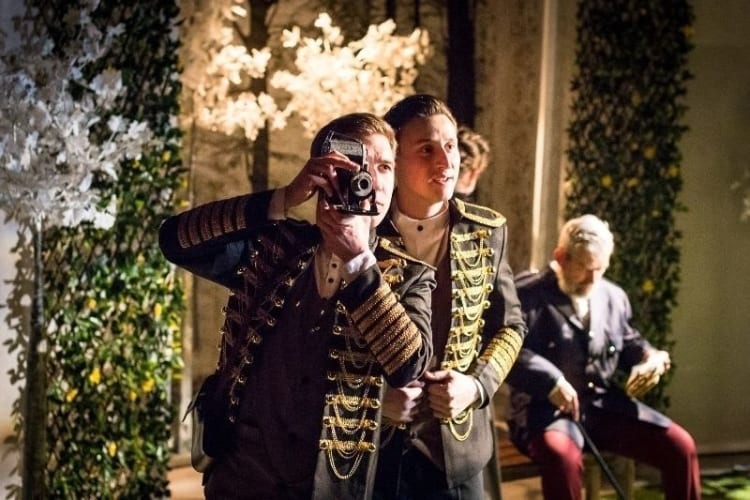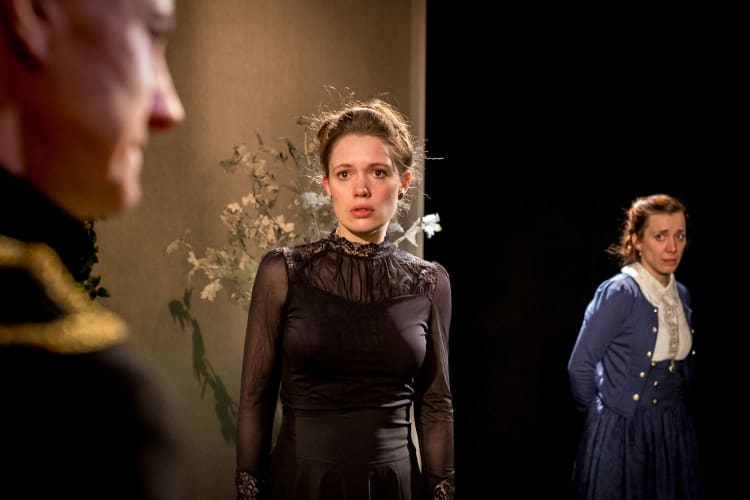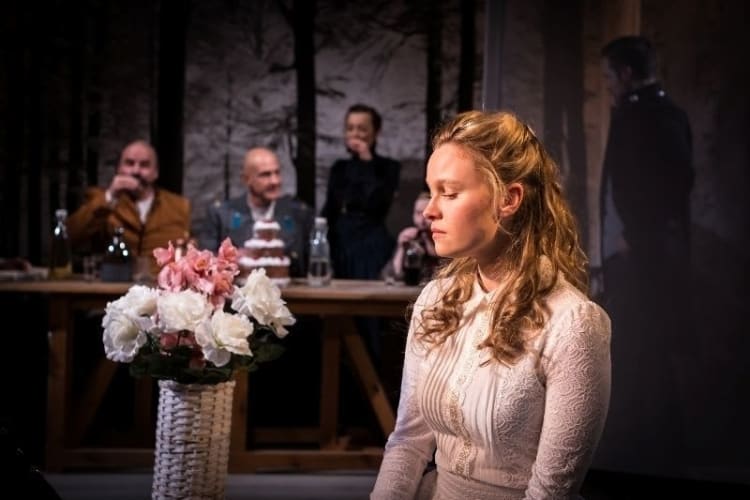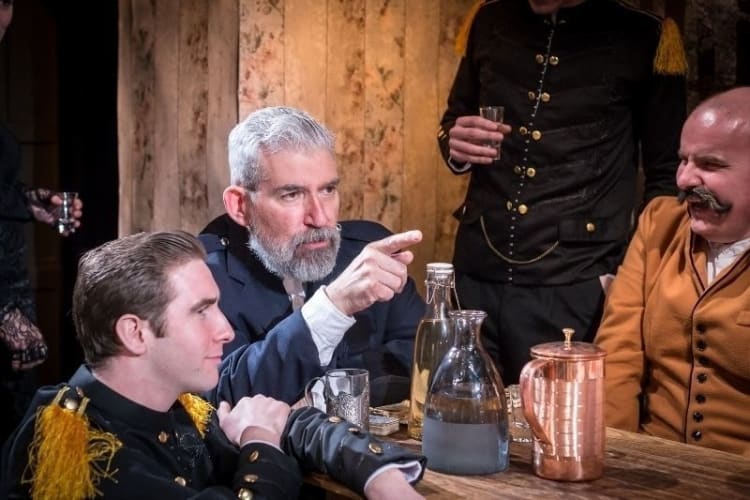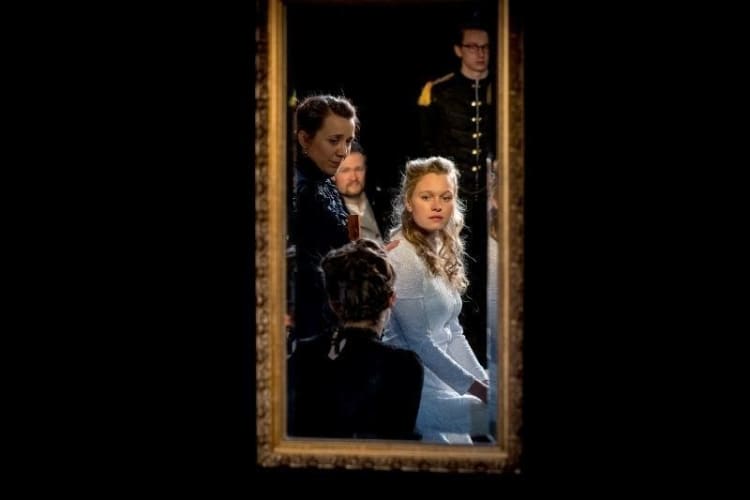Following its twice Offie-nominated production of Frankenstein, Arrows & Traps is back at The Jack Studio Theatre with another impressive production, this time of Three Sisters, in a new version by the company's artistic director, Ross McGregor.
In 1900, at the time when author and playwright Anton Chekhov wrote Three Sisters, his native Russia was experiencing a period of often turbulent change and McGregor's text effectively brings out a parallel between the country's and the characters' future.
Following the death of their father, the three Prozorov sisters have been waiting out a period of mourning in a stultifyingly dull garrison town. Educated and culturally starved in the provinces, they are sustained only by their shared plan to return to the excitement of Moscow where they spent their childhood.
But there is more to this dream than an escape from small town banality—in this parentless family it is their brother Andrei who notionally takes the helm and it is Natasha, the vulgar, local girl he marries, who takes over as châtelaine, dividing the siblings.
It is into this unfulfilled if privileged household that the Prozorovs welcome the garrison's soldiers who provide the only colour in their uneventful lives. Foremost amongst these are Baron Tuzenbach, who courts the youngest sister Irina, and the unhappily married Colonel Vershinin, who provides middle sister Masha with the ardour missing in her marriage to the devoted Kulygin.
The sisters at first look to their past to provide happiness for their future, then look to the fortunes of future generations to justify their luckless destiny, the heavily symbolic breaking of the dead mother's clock by the lodger Chebutykin and Tuzenbach's and Vershinin's bright visions for the future of their country all serve to keep the conflict between the draw of the past and the allure of the future rumbling below the surface.
McGregor, who also directs, reflects this undercurrent mixing the traditional folksong "Kalinka" with more contemporary music, and including some 21st century language and behaviour into turn of the century etiquette with variable success.
With "intimacy director" (a job title new to me) Yarit Dor, McGregor also creates a claustrophobic family circle over which catharsis lies like a heavy blanket. Cornelia Baumann's powerful Olga is strong-minded but unable to pull away from the anchor that ties her down, any more than Claire Bowman's sensual Masha can resist the passionate and progressive Vershinin, thoughtfully portrayed by Toby Wynn-Davies.
Natasha's transition from shy, socially inept town girl to controlling mistress of the house is on the blunt side and makes the Prozorov siblings look weaker for it, shifting the conclusion away from uplifting conviction towards pathos.
